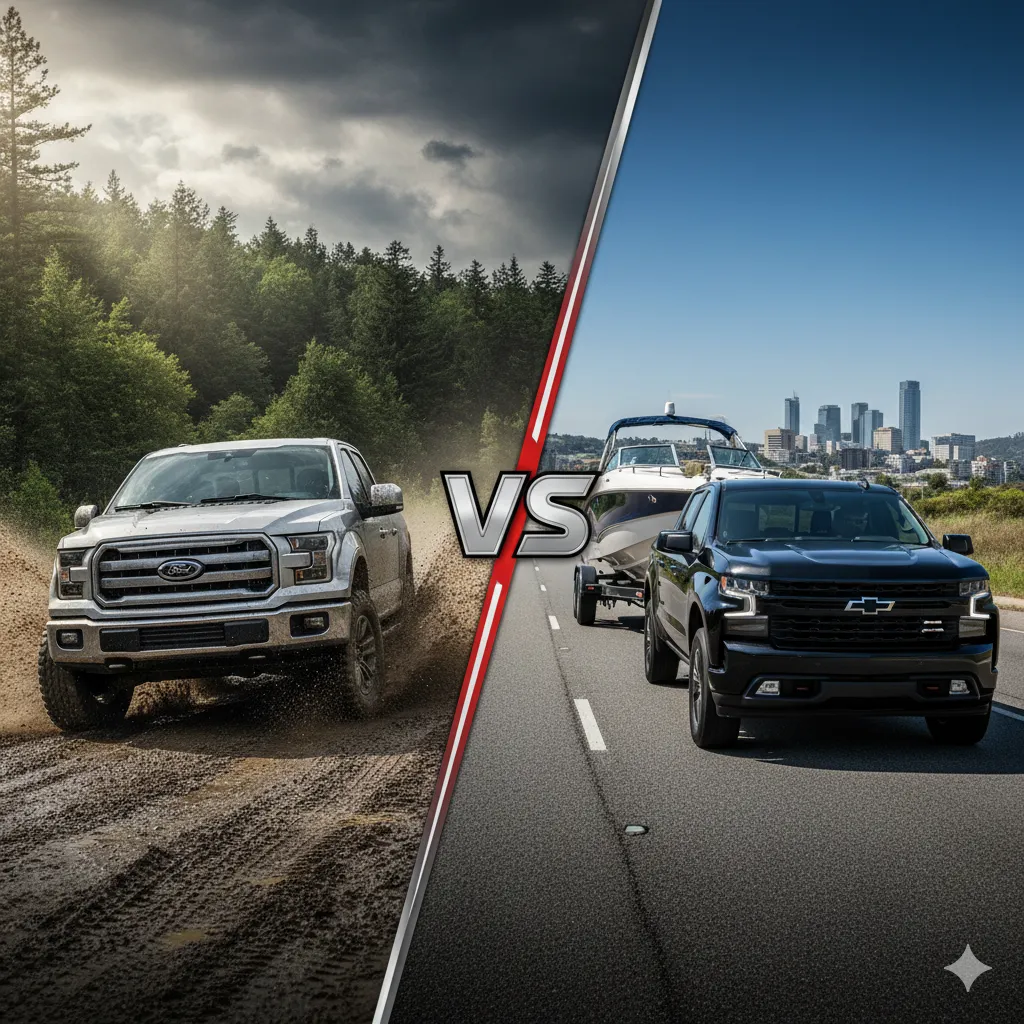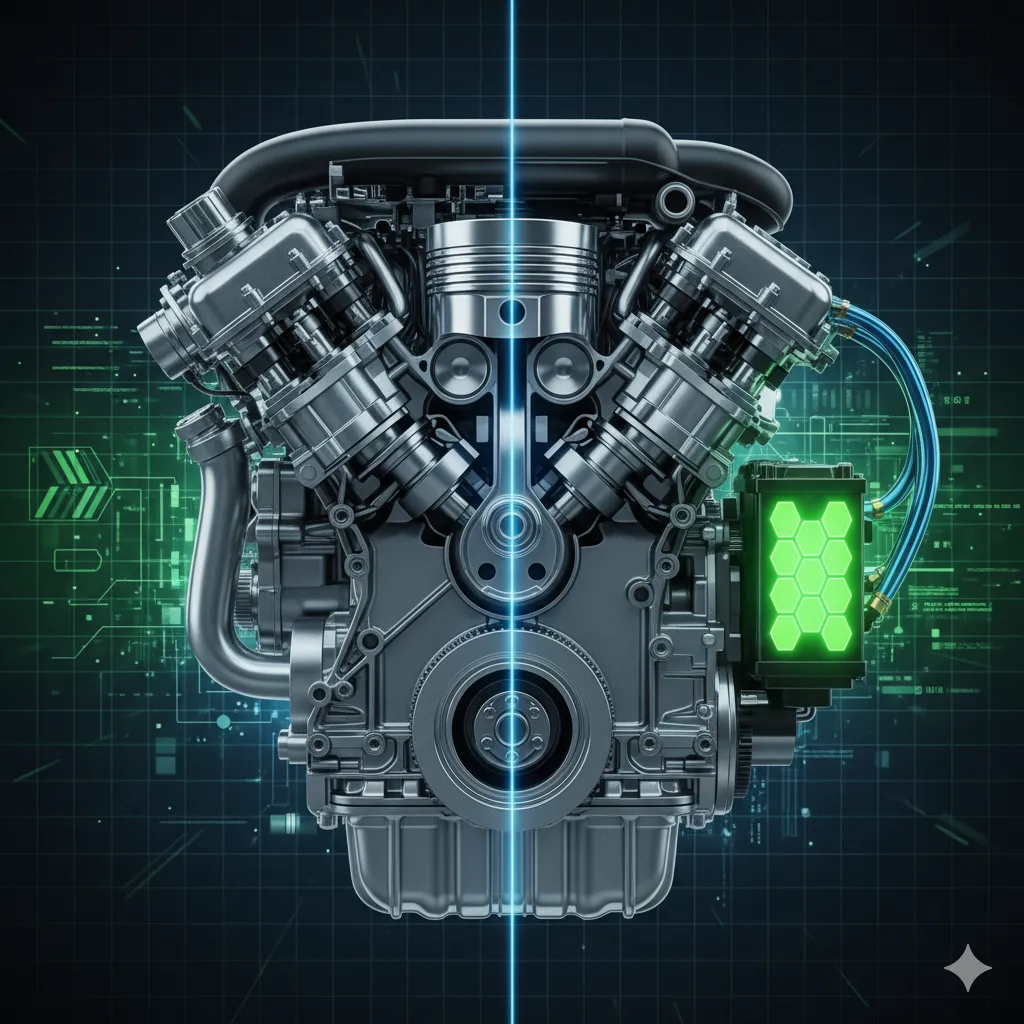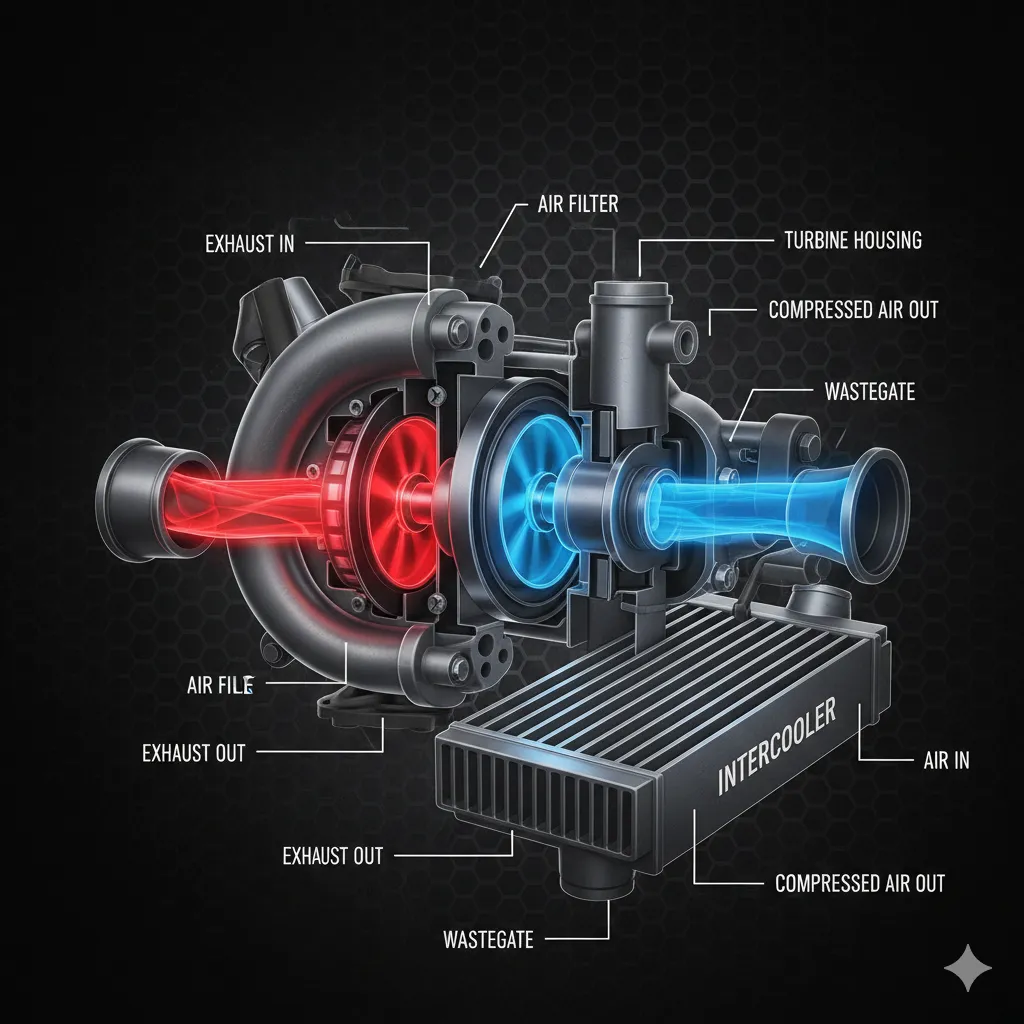
Ford vs. Chevrolet: The Ultimate American Rivalry
Ford vs. Chevrolet: The Ultimate American Rivalry
For over 100 years, two names have defined the American automobile industry: Ford and Chevrolet. Born in Detroit, both companies—Ford Motor Company and General Motors’ (GM) Chevrolet division—represent the pioneering spirit and industrial might of the nation. This battle of the brands transcends mere commerce; it’s a debate that fuels passion, inspires loyalty, and divides families across the nation.
Are you a Ford devotee, loyal to the F-Series legacy and the Mustang's muscle? Or are you a steadfast Chevy enthusiast, proud of the Silverado's dependability and the Corvette's iconic status? Let's analyze this classic showdown, focusing on the vehicles that matter most.
A Century of Competition: The History of the Ford vs. Chevrolet Feud (H2)
The genesis of the Ford vs. Chevrolet rivalry dates back to the early 1900s. Henry Ford’s revolutionary assembly line and the affordable Model T transformed transportation, while Chevrolet, established slightly later under General Motors, quickly became its primary competitor, often by offering more variety and options.
The competition intensified in the mid-20th century. Ford launched the groundbreaking Mustang in 1964, essentially creating the "pony car" segment. Chevrolet's immediate and potent response was the Camaro, sparking one of the most famous head-to-head battles in automotive history. This tit-for-tat development defined an era and set the tone for every segment moving forward, from trucks to family SUVs.
The Heavyweights: F-150 vs. Silverado (H2)
In the American automotive landscape, nothing is more crucial than the full-size pickup truck segment. The battle between the Ford F-150 vs. Chevy Silverado is the single most important factor in the larger Ford vs. Chevrolet sales war.
Ford F-150: The Sales King (H3)
Ford's F-Series has held the title of America's best-selling vehicle for decades. Ford often emphasizes innovation, offering advanced features like the available Pro Power Onboard generator, an all-aluminum body (since 2015) for reduced weight, and the electric F-150 Lightning model. Ford is known for robust towing capabilities and a wide array of engine options, including the powerful EcoBoost V6 lineup.
-
Key Feature: Pro Power Onboard (integrated generator).
-
Brand Focus: Innovation, maximum capability, and high resale value.
Chevrolet Silverado: The Dependable Workhorse (H3)
The Chevrolet Silverado, part of the broader General Motors truck family (which includes the GMC Sierra), is a formidable rival. Chevy trucks are often lauded for their dependable V8 engine power and user-friendly technology, such as the Durabed, which offers best-in-class standard cargo volume and a variety of functional trailering views. The optional Super Cruise hands-free driving system, which can often be used while towing, is another significant selling point for Chevy.
-
Key Feature: Best-in-class standard cargo bed volume and Super Cruise availability.
-
Brand Focus: V8 power, durability, and practical utility.
Muscle Car Mayhem: Mustang vs. Camaro (H2)
While trucks define utility, the muscle cars define passion. The Mustang vs. Camaro rivalry is one that brings enthusiasts to blows (verbally, of course).
-
Ford Mustang: The original pony car. The Mustang is historically praised for its wide variety of trim levels, aggressive styling, and a powerful engine lineup, from the entry-level EcoBoost to the track-ready Dark Horse. It represents freedom and accessible performance.
-
Chevrolet Camaro: The Camaro has always been engineered as a direct competitor, often praised by purists for its superior handling and more communicative driving dynamics, especially in its V8-equipped trims. While the Camaro is currently phased out of production, its legacy and presence on the used market continue the debate.
Modern Crossroads: Electrification and Technology (H2)
The future of the Ford vs. Chevrolet rivalry is being written in electric motors and software. Both brands are heavily investing in electric vehicles (EVs) and advanced driver-assistance systems.
-
Ford: The Mustang Mach-E (electric crossover) and the F-150 Lightning are at the forefront of Ford's EV push. Ford’s BlueCruise is its hands-free driving technology, which is constantly expanding its road network.
-
Chevrolet: Chevy’s Ultium platform underpins new EVs like the Silverado EV and Blazer EV. Chevrolet often touts its Super Cruise system as having a wider coverage area for hands-free driving, making it a compelling tech argument against Ford’s offering.
Reliability and Value: Which Brand Wins Long Term? (H2)
The ultimate deciding factor for many buyers is long-term ownership.
Reliability and Maintenance (H3)
In many industry reports and consumer surveys, Chevrolet models often edge out Ford in initial dependability and reliability scores, though both brands generally rank in the middle of the pack among all manufacturers. Ford and Chevrolet typically offer similar basic and powertrain warranty coverage: 3 years/36,000 miles and 5 years/60,000 miles, respectively. Chevrolet, however, often includes a complimentary first scheduled maintenance visit, a small but appreciated perk.
Resale Value (H3)
Ford generally holds the slight advantage in long-term resale value, especially for its core models like the F-Series and Bronco. Higher resale value translates to a better long-term investment for the owner, making Ford a stronger financial proposition when it comes time to trade in.
Conclusion: Choosing Your Side (H2)
The Ford vs. Chevrolet debate has no single correct answer. The best brand depends entirely on what you prioritize as a driver:
-
Choose Ford if: You prioritize innovation, best-in-class towing, a high resale value, and want the current top-selling truck.
-
Choose Chevrolet if: You value V8 performance, a dependable full-size SUV lineup (Tahoe/Suburban), superior cargo volume in a truck bed, and a robust hands-free driving system.
Both Ford and Chevrolet stand as pillars of American engineering. They may be rivals, but their intense competition is what drives both companies to continually improve, innovate, and give drivers around the world better vehicles. No matter which emblem you choose—the Blue Oval or the Bowtie—you're driving a piece of history.
Frequently Asked Questions (FAQs)
Is Ford or Chevrolet better for towing? (H3)
While both offer exceptional towing, the Ford F-150 often holds a slight edge with a higher maximum available conventional towing capacity in certain configurations, utilizing its powerful EcoBoost engines. The choice may come down to which specific trim and engine combination you need.
Which company is older, Ford or Chevrolet? (H3)
Ford Motor Company is older, founded in 1903. Chevrolet was founded in 1911 by Louis Chevrolet and William C. Durant, who also founded General Motors.
Does Ford or Chevy have better technology? (H3)
Both offer competitive technology. Chevy’s Super Cruise system is often regarded as one of the best hands-free driving systems, even allowing use while towing. Ford’s SYNC system and Pro Power Onboard feature give it an edge in in-vehicle utility and power generation. It’s a draw based on feature preference.
e) External Links
-
Chevrolet Official Site:
https://www.chevrolet.com(Authoritative source for Chevrolet specs and news) -
Ford Official Site:
https://www.ford.com(Authoritative source for Ford specs and news) -
U.S. Department of Energy (Fuel Economy):
https://www.fueleconomy.gov(For objective comparison of vehicle fuel efficiency)




